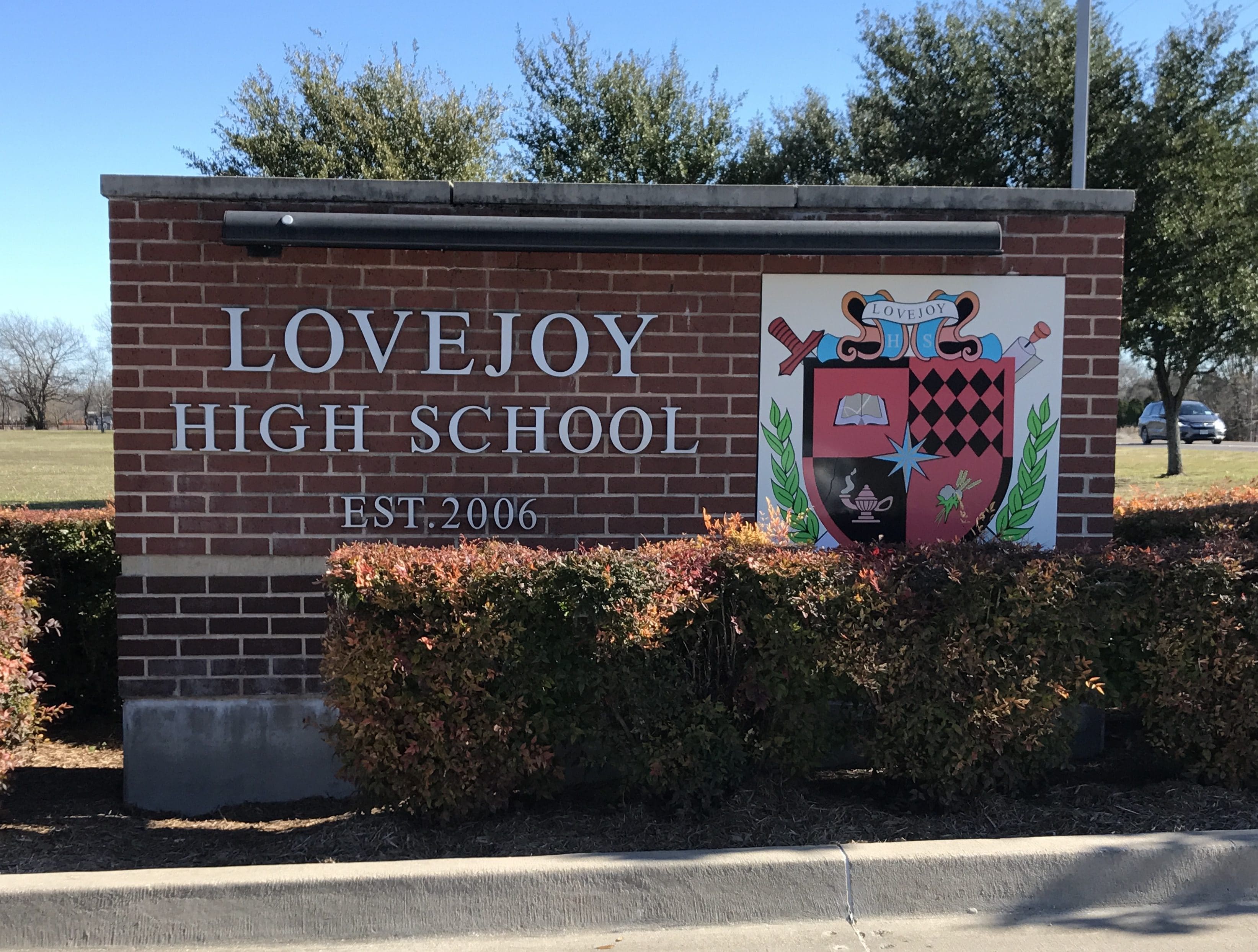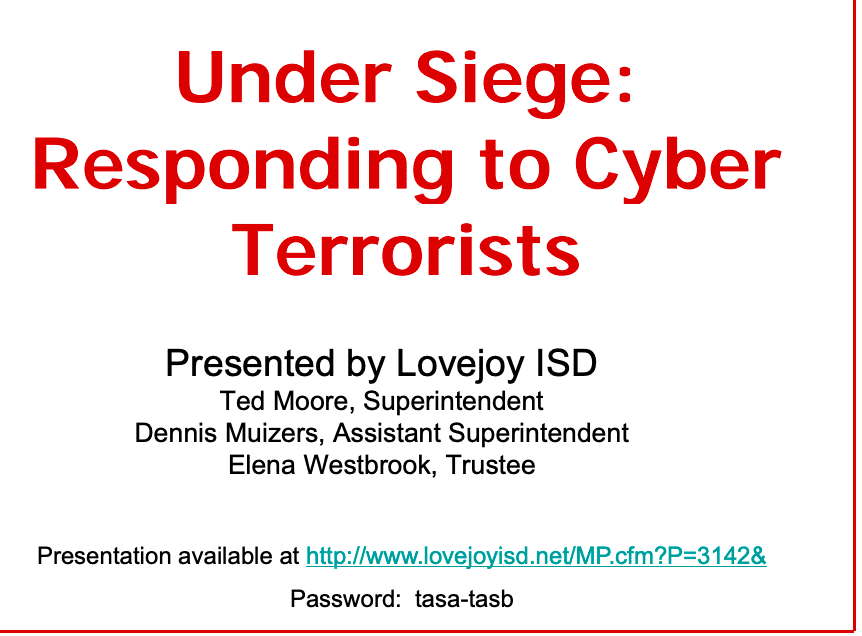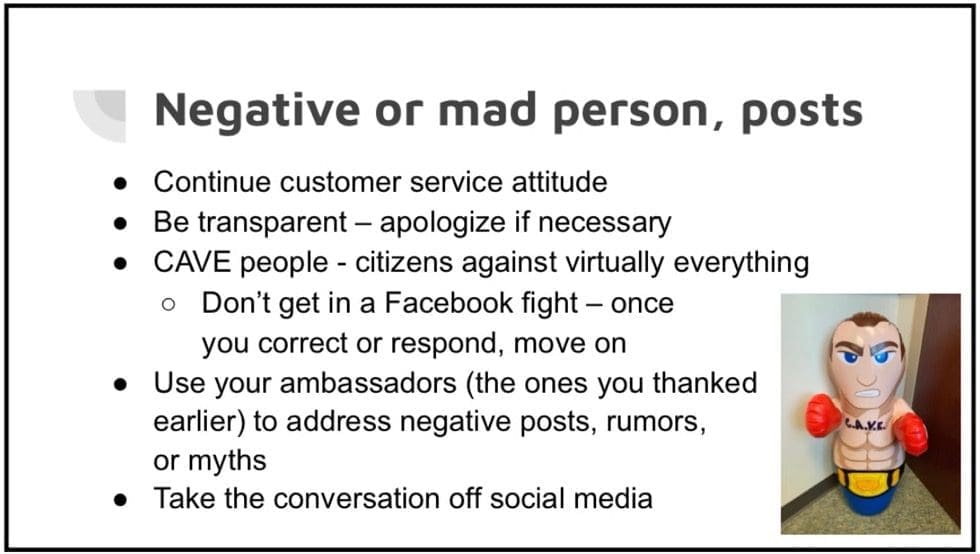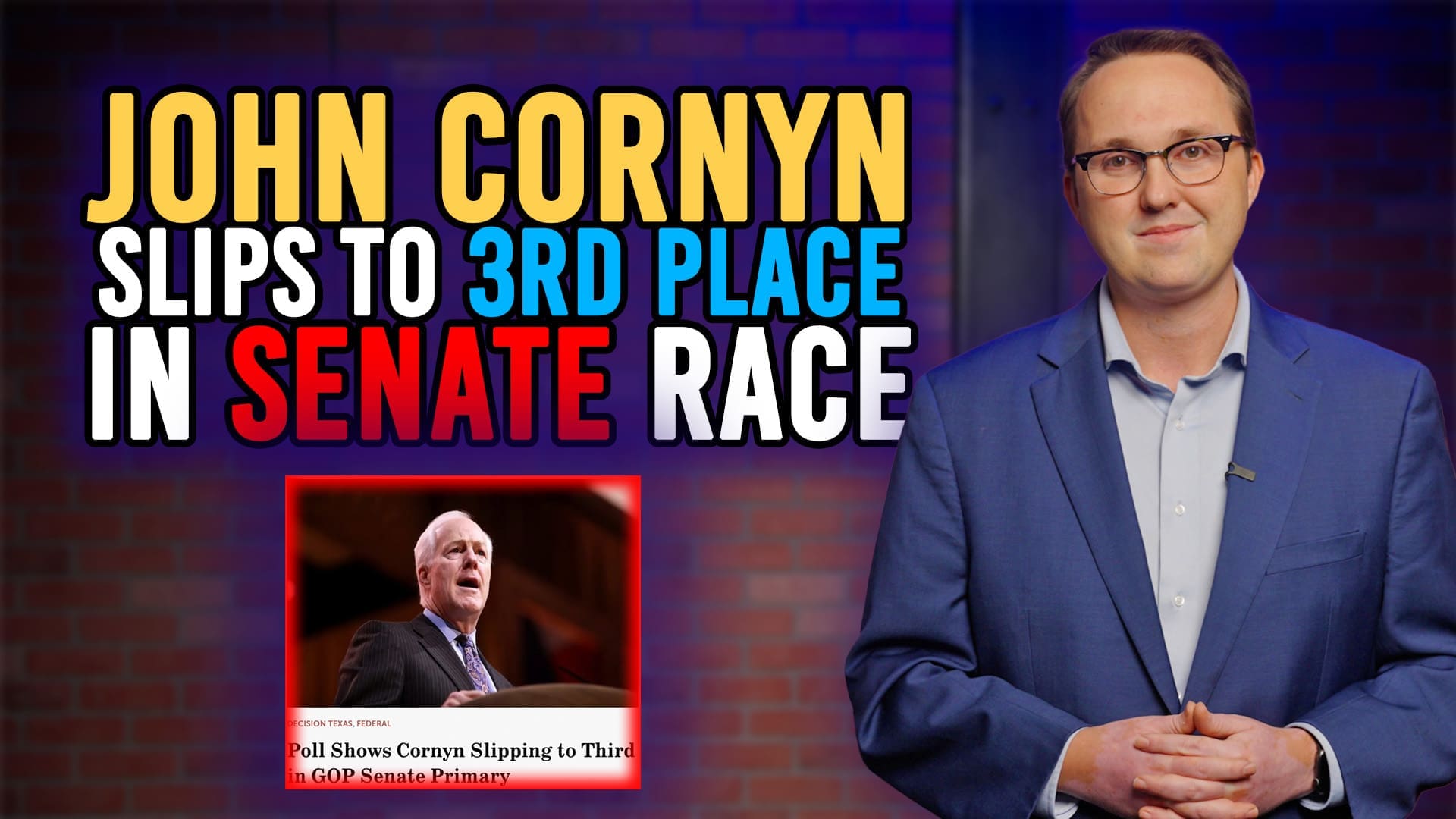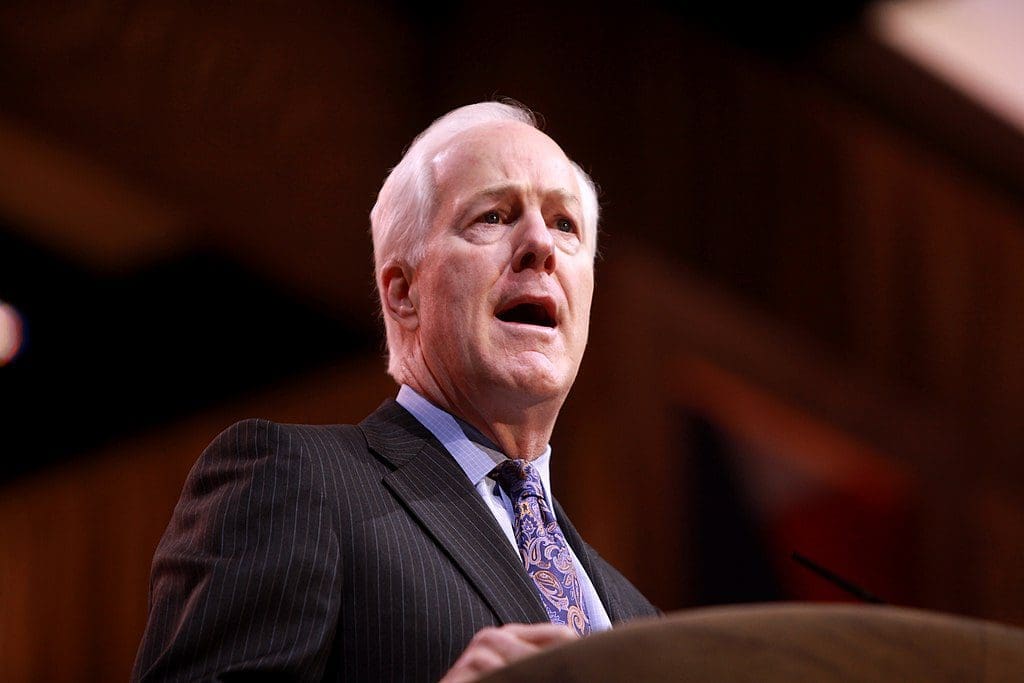In a huge victory for taxpayers, a North Texas resident has won a three-year fight to hold her local school district accountable for unlawfully using tax dollars to promote a school tax increase.
Brenda Rizos, a longtime school accountability advocate, filed an ethics complaint against Lovejoy Independent School District officials in 2016 (revised in 2017), claiming then-Superintendent Ted Moore authorized spending public funds for political advertising—a violation of the Texas Election Code.
In a November ruling, the Texas Ethics Commission, which handles such complaints, agreed with Rizos.
“This is a huge victory for taxpayers,” Rizos told Texas Scorecard. “TEC actually went above and beyond my complaint and referred to the imagery used in the video!”
“Clear Implication” Is to Vote for the TRE
Lovejoy ISD officials had used tax dollars and other school resources to produce and distribute information about a 2016 Tax Ratification Election (TRE) asking voters to raise the school property tax rate by over 10 percent.
Rizos argued the district’s promotional videos and emails strongly advocated for passage of the TRE, crossing the line from permissible information into prohibited electioneering.
The TEC ruling agreed, concluding a video produced and distributed by the district clearly supported the tax hike and was therefore prohibited political advertising under Section 255.003 of the Election Code:
The screen sets up a choice for the voter: if you vote for the measure you desire and expect excellent programs and experiences; if you vote against it you are for less than excellent programs and experiences for Lovejoy ISD. The clear implication is that the LISD administrators that produced the video want the viewer to vote for the TRE.
The TEC also found that, during school work hours, Moore authorized spending public funds to film and distribute the video using district resources—a Class A misdemeanor.
Besides posting it on the district’s website, Moore included the video in multiple emails he sent from his school account in the weeks leading up to the election, which the district chose to hold on May 21—two weeks after the regular May municipal election. The 11-cent tax rate hike passed with 52 percent of the vote.
Moore, who was forced out of office in February due to an unrelated scandal the district said involved inappropriate conduct with adult victims, was personally fined $1,500.
“We need someone to help citizens.”
Rizos says she thinks the ruling will help other taxpayers who want to hold their districts accountable.
She said the order “clarifies and broadens” the definition of electioneering and “puts to death the pizza analogy” and other subjective language and imagery school officials need to stop using:
The visuals include a tax payer knight protecting the school from a “lost funding” dragon. In no way can that portion of the animation be considered a description of the purposes of the measure. The knight versus dragon animation is a clear call to action, trying to rally taxpayers to help ward the effects of reduced state funding by approving the TRE.
The video again uses animation and visuals and crosses the line from a description of the purposes of the measure to advocacy by comparing the cost of the tax increase to that of a takeout pizza. There’s no reason to divide the yearly cost of the tax increase by 52 weeks and compare it to a minor indulgence except to minimize the cost to taxpayers.
Lovejoy is not the only school district that has drawn complaints about using taxpayer funds to electioneer for tax hikes and bonds.
Lewisville ISD budgeted $280,000 to promote a $737 million bond proposition in 2017. In 2018, Lancaster ISD employees were caught on video telling people to vote for a TRE during a district-sponsored event at an on-campus polling place. Earlier this year, Conroe ISD sent taxpayer-funded mailers and emails promoting an $807 million bond.
Also in 2018, three school districts—including Lewisville—were admonished by the state for illegally electioneering after they were caught using “taxpayer resources to distribute messages to their staff and the public advocating for or against certain political candidates and measures.”
State Sen. Pat Fallon (R–Prosper) proposed a bill last year to clarify what activities constitute an illegal use of taxpayer resources for electioneering. The public education lobby fought the reform, which passed the Senate but died in the House.
Rizos says concerned citizens are on their own when it comes to holding school officials accountable.
“The taxpayer has nobody to help them,” she told Texas Scorecard. “You practically have to be a lawyer to fight these things. We need someone to help citizens.”
“If YOU are not watching … no one else is.”
Rizos has been a citizen “watchdog” since 2002, when Lovejoy ISD started talking about separating from the Allen school district and building its own secondary schools.
The Lucas resident, whose children were Lovejoy students at the time, began raising questions about the district’s proposed new schools. She created a website, LovejoySchools.com, as a way to share information with her neighbors. The site warned residents, “It is up to parents and taxpayers to monitor finances, curriculum, contracts, stipends and nepotism. It’s called ‘local control.’ If YOU are not watching … no one else is.”
What she learned led her to believe the push for a new Lovejoy high school was driven by developers and landowners who wanted high-density projects built in the country community.
“It wasn’t about the kids, it was about real estate,” Rizos said.
Local voters approved the new schools in 2003, and Lovejoy High School opened in 2006. Rizos continued to be an active advocate for school accountability.
In 2005, Rizos served on a citizen task force selected to provide input on an order by then-Texas Gov. Rick Perry that directed districts to spend 65 percent of their funds on classroom instruction.
She even ran for a seat on Lovejoy’s school board in 2013. (A lawyer working with Moore later dismissed Rizos as a “disgruntled ex-school board candidate.”)
But Rizos said the district’s blatant electioneering for the 2016 TRE was the “final straw.”
“I felt like I had to do something,” she said, though filing a formal complaint proved complicated and she found very few cases in which the TEC ruled against a district. She is happy there is now one more case with such a ruling.
“Under Siege”
All along the way, school officials didn’t simply ignore Rizos’ concerns—they attacked her.
Rizos said she received threatening phone calls after Moore told people at a 2008 community meeting that she was trying to destroy the district. Moore then called Rizos and others who publicly criticized the school district “cyber terrorists,” warning that their “tactics” included online discussion groups and public information requests.
That attack was part of a presentation called “Under Siege” made by Moore, Assistant Superintendent Dennis Muizers, and then-Trustee Elena Westbrook to a statewide conference of school district officials with the Texas Association of School Boards, which “serves and represents local Texas school boards,” not taxpayers.
Earlier this year, TASB coined a new term for constituents like Rizos who demand accountability in how their school tax dollars are spent: “CAVE” people, short for “Citizens Against Virtually Everything.” They advised school officials to use “ambassadors” to address “negative posts, rumors, or myths.”
Of course, Rizos’ complaint was not a myth. In light of her victory, better advice for school officials would be to respect taxpayers—and follow the law.
